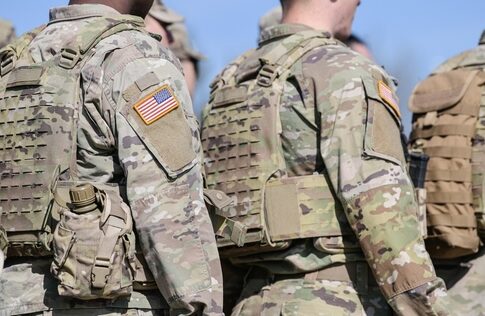On New Year’s Day, New Orleans was tragically struck by a terrorist attack led by a former Army soldier transformed into an extremist. Shamsud-Din Bahar Jabbar drove a truck through a crowd killing 15 people. Older Jabbar’s video showcases ties to ISIS and plans to harm his family.
Unfolding of a Tragedy
Shamsud-Din Bahar Jabbar, a 42-year-old Army veteran, executed a terrorist attack in New Orleans, claiming at least 15 lives. Jabbar recorded video declarations of allegiance to ISIS, expressing intent to kill. He drove from Texas to Louisiana, executing the assault on Bourbon Street on January 1st. Armed with firearms and improvised explosive devices, Jabbar died in an exchange of gunfire with police forces.
The attack shocked the city and highlighted the potential for radicalization in veterans struggling with life after the military. Jabbar was a decorated soldier, once honorably discharged, but his mind twisted towards extremist views. Investigations are probing Jabbar’s motivations and potential connections, including any ISIS affiliations.
These hydraulic steel barricades were installed in New Orleans in response to attacks where t*rrorists use cars as a weapon.
A witness says they weren’t raised last night. People were confused as to why they weren’t raised.
This is how the t*rrorist was able to k*ll so many… pic.twitter.com/dU6QtSZY7q
— Libs of TikTok (@libsoftiktok) January 1, 2025
Investigation Insights
President Biden confirmed Jabbar’s inspiration from ISIS, addressing the nation with assurance that investigations would be thorough. Current findings point to Jabbar acting alone, although initial suspicions extended to three men and a woman no longer seen as guilty. The horrifying event underscores the need for increased attention to veterans’ mental health, to prevent individuals like Jabbar from veering into violent extremism.
In parallel, the city faced another tense situation involving a Cybertruck explosion outside Trump Tower in Las Vegas. This incident caused injury and potential links to terrorism are being investigated due to Elon Musk’s connections with President-elect Trump. Musk reported the incident may involve fireworks or an explosive device.
BREAKING: The Colorado Springs man, Matthew Livelsberger, who is accused of detonating a Tesla Cybertruck in front of the Trump Hotel in Las Vegas, and the suspect in the New Orleans terrorist attack Shamsud-Din Bahar Jabbar, served at the same military base, according to… pic.twitter.com/jgJu7x3Htf
— RedWave Press (@RedWave_Press) January 2, 2025
The Way Forward
The attacks highlight the dire need for effective intervention strategies, including mental health support and de-radicalization programs specifically tailored for veterans. Shamsud-Din Jabbar’s case may not be isolated, calling for an urgent reassessment of support structures for transitioning military members to prevent future tragedies. Communities must brace themselves against terrorism while prioritizing veteran care, and honoring those who serve while safeguarding society.
Strengthening the societal safety net for veterans necessitates collaborative governmental and community efforts. The global fight against terrorism demands vigilance, resilience, and a commitment to supporting service members to ensure they return to civilian life as enriched contributors to society, not tormented adversaries.


